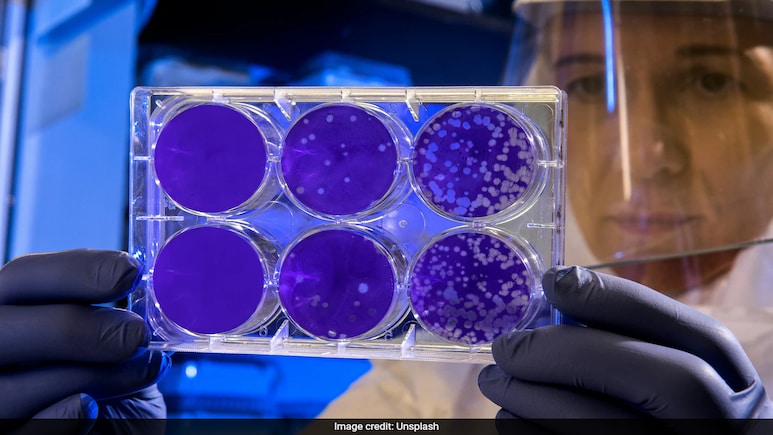
Clostridioides difficile (C. difficile or C. diff) is a type of bacteria that causes a range of gastrointestinal symptoms, from mild diarrhoea to life-threatening colitis. It affects the colon, which is the longest part of the large intestine.
Spread of this bacterium is a significant public health concern, particularly in healthcare settings, as the infections often occur after antibiotic use, which disrupts the normal balance of gut bacteria.
C. difficile is a "headache in the healthcare services community", said Dr Saswata Chatterjee, Gastroenterologist, CMRI Hospital, while speaking to NDTV.
Dr Chatterjee said that C. difficile, which is an anaerobic spore-forming gram-positive gut pathogen, affects elderly people the most, especially those who are over 65. Although some strains of the bacterium are more likely to affect younger people.
Dr Siddharth Badola, Consultant - Hepatologist & Advanced Endoscopy Specialist, Manipal Hospital, Ghaziabad, told NDTV, "C. difficile is concerning for several reasons. One is the spore-forming ability of the organism. Spores are very difficult to kill, can survive on hospital surfaces for months, resist common disinfectants, and can be spread through contaminated hands and medical equipment."
How does the infection spread?
The infections often occur after antibiotic use, which disrupts the normal balance of gut bacteria. The spores can be spread through contaminated surfaces, healthcare workers' hands and faecal-oral transmission.
What are the symptoms?
- Diarrhea
- Loss of fluids, called dehydration
- Abdominal pain
- Fever
- Loss of appetite
- Blood in stool
- Fast heart rate
- Increased white blood cell count
- Kidney failure
- Severe weight loss
"Sometimes it causes watery diarrhoea, sometimes it causes bloody diarrhoea, sometimes it causes toxic mineral colon, and it definitely leads to pseudomembranous colitis," Dr Chatterjee said.
"It necessitates prolonged hospitalisation. It necessitates a separate treatment protocol of its own. Frequently, it is known to recur."
As per a report by Mayo Clinic, C. difficile infection can cause the colon to become inflamed and get larger, called toxic megacolon. And it can cause a condition called sepsis, where the body's response to an infection damages its own tissues.
"This infection can result in diarrhoea which can be life threatening if not managed properly. Diarrhoea can lead to dehydration and shock and in some cases toxic megacolon which can lead to bowel perforation and death," Dr Badola said.
What is the treatment?
Treatment typically involves stopping antibiotics and administering specific antibiotics like vancomycin or fidaxomicin.
"Some people need advanced forms of therapies such as faecal microbiota, microbiota transplantation. Some people need antibiotics such as vancomycin or metronidazole for their treatment. And sometimes people would have needed fidaxomycin, which is unfortunately not very well available in India," Dr Chatterjee said.
"It is a headache in the healthcare services community, but when we see data from community prevalence, it is fortunately quite low till date."
Track Latest News Live on NDTV.com and get news updates from India and around the world

